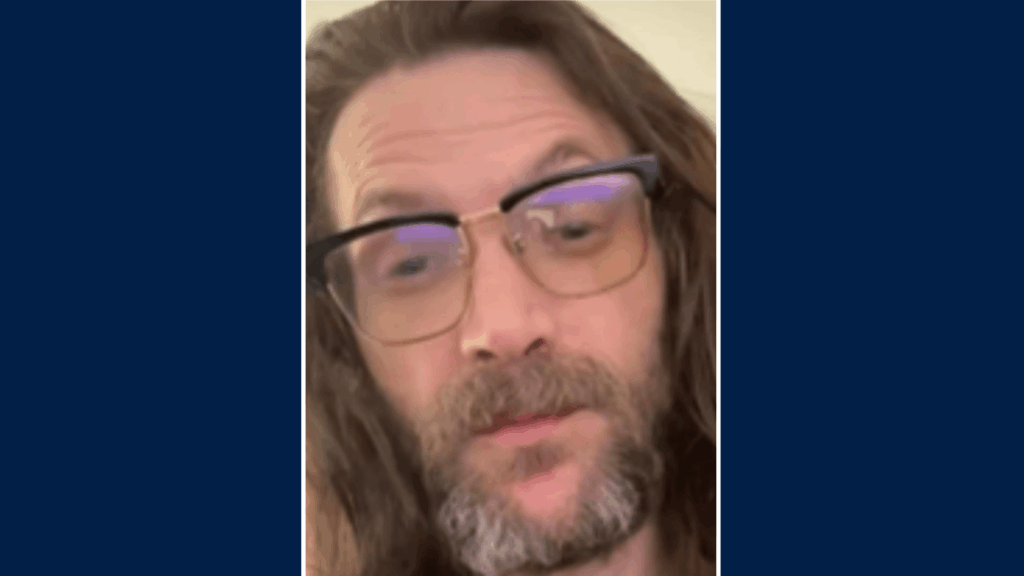On August 4, 2025, federal authorities arrested Christopher Robertson, a 42-year-old man from Fairburn, Georgia, for posting threatening videos targeting Black and Jewish communities on social media. The arrest, which followed a standoff with FBI agents, underscores the escalating threat of online hate speech and its potential to incite violence against marginalized groups.
Robertson faces multiple federal charges related to the interstate communication of threats. This case not only highlights the rising trend of racially motivated hate speech online but also draws attention to the ongoing challenges in combatting racial hatred in a digital age.
The Arrest and Charges
According to a statement from the U.S. Attorney’s Office for the Northern District of Georgia, Robertson was taken into custody after he posted videos on Facebook in which he made explicit threats to kill Black and Jewish individuals. These posts were flagged by concerned citizens and subsequently investigated by federal law enforcement officials.
The charges against Robertson are a direct response to his actions, which authorities argue were designed to incite fear and hatred against two of the most targeted communities in the U.S. today—Black Americans and Jewish people.
Federal Prosecutor’s Statement
U.S. Attorney Theodore S. Hertzberg expressed the seriousness of the case, stating, “Protecting the community from hate-fueled violence is a foundational part of the Department of Justice’s mission. These threats, fueled by racism and bigotry, have no place in our society, and we will continue to pursue justice for those who seek to terrorize others based on their race or religion.”
The arrest was a coordinated effort between the FBI’s Atlanta Division and local law enforcement. While Robertson was apprehended without incident, the case has opened up broader discussions about the need for increased monitoring of social media platforms where such hate speech is often spread unchecked.
The Rise of Hate Speech Online
Robertson’s arrest is not an isolated incident. In recent years, there has been a noticeable increase in online hate speech directed at racial minorities, particularly Black Americans and Jewish communities. According to data from the Anti-Defamation League (ADL), online platforms have become breeding grounds for extremist rhetoric, which often leads to real-world violence. In fact, many hate-fueled crimes in recent years have been linked to social media posts that call for violence against specific racial, religious, or ethnic groups.
This trend is particularly concerning in a climate where racial divisions are more pronounced, and hate groups are leveraging the anonymity of the internet to spread their messages without accountability. Experts argue that tech companies must do more to prevent the spread of hateful rhetoric, including implementing stronger content moderation and developing systems that detect and flag potential threats before they escalate.
Implications for Racial Justice
The arrest of Robertson is a reminder that hate speech is not a harmless expression of free speech but a dangerous catalyst for violence. For marginalized communities, particularly Black Americans and Jewish people, the constant threat of racial violence—both online and offline—is an ever-present reality.
This case also highlights the importance of continued advocacy for racial justice, particularly when it comes to holding individuals accountable for hate-driven actions. Legal experts assert that laws surrounding hate speech must evolve to address the complexities of digital communication, ensuring that online platforms are held accountable for facilitating the spread of racial hatred.
Additionally, civil rights organizations have long warned about the dangers of failing to address hate speech effectively. Organizations like the NAACP and the Anti-Defamation League have called for stronger legal action against hate groups and greater efforts to protect communities from violence. This includes pushing for federal legislation to combat hate speech and providing resources for communities targeted by such rhetoric.
The Role of Social Media Platforms
Social media companies have come under increasing scrutiny for their role in allowing hate speech to flourish. Despite efforts by some platforms to ban accounts promoting racial hatred and violence, many critics argue that these companies are not doing enough to prevent the dissemination of harmful content.
Facebook, Twitter, and other social media giants have been criticized for not implementing robust enough systems to prevent the spread of extremist content. While they have introduced community guidelines and content moderation policies, the issue persists, with many users able to evade detection through tactics such as creating new accounts or using coded language to hide their true intentions.
Civil rights leaders have called for these platforms to take more responsibility in addressing the problem of hate speech. They argue that the companies need to invest more in artificial intelligence tools that can identify harmful content and remove it promptly. Moreover, these companies must also be transparent about their efforts to combat hate speech and provide better support for users who are victims of online harassment.
Conclusion: A Call to Action
The arrest of Christopher Robertson serves as a stark reminder of the ongoing threat posed by online hate speech and its connection to real-world violence. For Black Americans, Jewish communities, and other marginalized groups, the fight against racial hatred and violence is far from over.
As a society, we must continue to push for stronger protections against hate speech, whether online or in public spaces. This includes holding individuals accountable for making threats, as well as demanding that social media platforms take meaningful steps to prevent the spread of racism and extremism.
Furthermore, we must continue advocating for racial justice in all aspects of our society. This includes legal reforms, increased community engagement, and ongoing education to dismantle the systems of oppression that allow racial hatred to persist. Only by working together can we ensure a safer, more equitable society for all.

